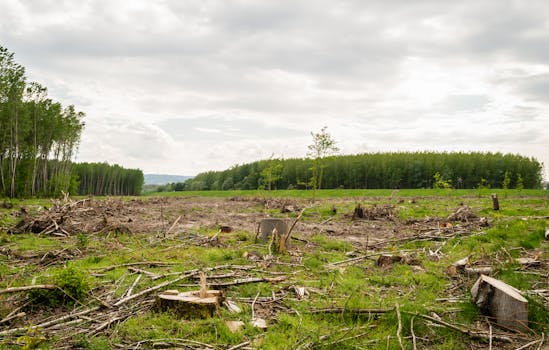
Introduction

The impact of climate change on global ecosystems is a pressing issue that demands our attention. As temperatures rise and weather patterns shift, the delicate balance of ecosystems around the world is being disrupted. This article delves into the various ways climate change affects biodiversity, habitats, and the overall health of our planet.
Biodiversity Loss

Climate change is one of the leading causes of biodiversity loss. Species that are unable to adapt to rapidly changing environments face extinction. For instance, polar bears rely on sea ice to hunt for seals, their primary food source. As ice melts due to rising temperatures, their hunting grounds shrink, leading to a decline in their populations.
Habitat Destruction

In addition to affecting individual species, climate change contributes to habitat destruction. Forests, wetlands, and coral reefs are particularly vulnerable. Increased temperatures and changing precipitation patterns can lead to droughts or flooding, which can devastate these ecosystems. The destruction of habitats not only affects the species that live there but also disrupts the services those ecosystems provide, such as carbon storage and water filtration.
Interconnectedness of Ecosystems

Global ecosystems are interconnected, meaning that changes in one area can have ripple effects elsewhere. For example, deforestation in the Amazon rainforest can lead to changes in rainfall patterns as far away as North America. This interconnectedness highlights the importance of a holistic approach to conservation, taking into account the broader implications of climate change.
Conclusion

In conclusion, the impact of climate change on global ecosystems is profound and far-reaching. It threatens biodiversity, destroys habitats, and disrupts the interconnected web of life. Addressing climate change is crucial for the health of our planet and requires a collective effort from individuals, communities, and governments worldwide.



